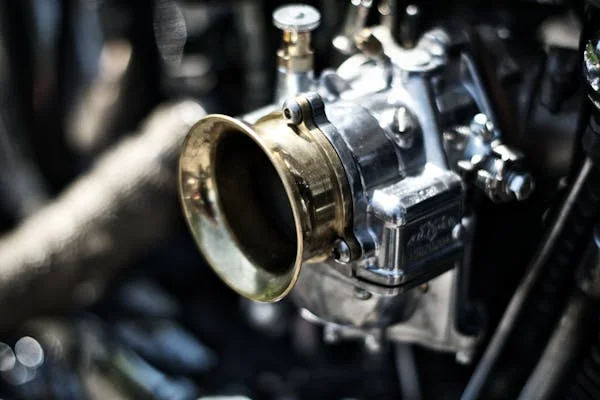Introduction
The Nissan K24 Propane Carburetor Fuel is renowned for its performance and reliability. When converted to run on propane, this engine becomes even more efficient, cleaner, and cost-effective. This guide will walk you through the benefits of using a propane carburetor with the Nissan K24 engine, explain the conversion process, and highlight the key components and maintenance requirements to ensure optimal performance.
What is the Nissan K24 Propane Carburetor Fuel?
The Nissan K24 engine is a four-cylinder engine that has earned a solid reputation in the automotive industry. It powers a range of vehicles from Nissan and offers a perfect balance between performance and efficiency. When converted to propane, the K24 engine can deliver even better fuel efficiency and emit fewer harmful pollutants, benefiting both the environment and your wallet.
Propane as an Automotive Fuel: Why It Makes Sense
Propane, a clean-burning alternative to gasoline, has gained traction as a fuel source for vehicles due to its environmental benefits. Unlike gasoline and diesel, propane burns with fewer emissions, contributing to reduced air pollution. It’s also a more cost-effective fuel option in many regions, making it attractive to drivers who want to cut down on fuel expenses.
How Does a Propane Carburetor Work?
The propane carburetor is the heart of the conversion process. This device mixes propane with air before it enters the engine for combustion. The key components of a propane carburetor include the fuel delivery system, air intake system, and the combustion chamber. The carburetor adjusts the mixture of propane and air based on engine speed and load, optimizing engine performance and fuel efficiency.
The propane carburetor performs three main functions:
- Fuel Delivery: It regulates how much propane flows to the engine.
- Air Intake: It controls the air that mixes with propane, ensuring the engine receives the right air-fuel mixture.
- Combustion Optimization: It helps improve engine combustion efficiency, reducing carbon buildup and wear.
Benefits of Converting Your Nissan K24 Engine to Propane
Converting your Nissan K24 Propane Carburetor Fuel to run on propane offers a variety of benefits. Here are the most important advantages:
1. Cleaner Combustion
Propane burns more cleanly than gasoline, producing fewer harmful emissions. This means fewer carbon deposits in the engine and reduced environmental impact. Additionally, cleaner combustion translates into less wear on engine parts, resulting in longer engine life.
2. Lower Operating Costs
Propane is generally less expensive than gasoline. Moreover, propane engines typically require less maintenance, further reducing long-term costs. Over time, the savings on fuel and maintenance can be significant.
3. Better Fuel Efficiency
When properly tuned, a propane engine can offer better fuel efficiency compared to gasoline engines. Propane’s high octane rating allows for more efficient combustion, which can lead to better gas mileage.
4. Fewer Emissions
Propane emits fewer pollutants than gasoline or diesel, including carbon monoxide, hydrocarbons, and nitrogen oxides. This makes propane an eco-friendly fuel option, contributing to a cleaner environment.
5. Increased Engine Longevity
The cleaner burning properties of propane lead to less carbon buildup inside the engine. This results in less wear on engine components and can extend the overall life of the engine.
Key Components of a Propane Carburetor System
To convert your Nissan K24 engine to propane, you’ll need a few key components. Here’s a breakdown of the essential parts of the propane fuel system:
| Component | Role in the System |
| Propane Carburetor | Mixes propane with air for combustion and optimizes fuel delivery. |
| Propane Regulator | Reduces the high pressure from the tank to a manageable level for the engine. |
| Propane Tank | Stores the propane fuel safely under pressure. |
| Fuel Lines and Fittings | Transport propane from the tank to the carburetor. |
| Safety Shutoff Valve | Stops the propane flow in case of a leak or emergency. |
| Air Intake System | Supplies the engine with the correct amount of air to mix with the propane. |
| Mounting Brackets | Secure the propane tank and components in place inside the vehicle. |
These components work together to ensure your Nissan K24 engine runs smoothly and efficiently on propane.
How to Install a Propane Carburetor on a Nissan K24 Engine
Installing a propane carburetor on your Nissan K24 engine requires some mechanical knowledge and experience. Below are the general steps involved in the conversion process:
1. Preparation
Before starting, park your vehicle in a well-ventilated area and disconnect the battery to avoid electrical hazards. Wear safety gloves and goggles for protection.
2. Remove the Old Carburetor
Disconnect the fuel lines and remove the existing carburetor from the engine. You may need special tools to complete this step. Keep all the necessary tools handy to ensure a smooth process.
3. Install the Propane Carburetor
Place the propane carburetor in position and attach it securely to the manifold. Connect the fuel lines to the carburetor and follow the manufacturer’s installation instructions carefully. Make sure all components are tightly connected to avoid leaks.
4. Install the Propane Tank
Install the propane tank in a secure location within the vehicle, such as the trunk or undercarriage. Use proper mounting brackets to keep the tank in place. Ensure that all fittings and lines are connected correctly to the carburetor.
5. Tune the Carburetor
After installing the carburetor, you will need to tune it for the specific needs of your Nissan K24 engine. This involves adjusting the air-fuel mixture to ensure the engine runs efficiently and produces optimal power.
6. Test the System for Leaks
Before starting the engine, check all connections and fuel lines for leaks. Spray a soapy water solution on the joints and fittings. If bubbles appear, tighten the connections or replace any damaged parts.
7. Start the Engine
Once everything is installed and checked, start the engine and monitor its performance. If the engine is running smoothly, you’ve successfully converted it to propane. If necessary, adjust the carburetor to fine-tune the fuel mixture.
Maintaining Your Propane Carburetor System
To keep your Nissan K24 propane carburetor system working optimally, regular maintenance is required. Follow these steps to ensure long-lasting performance:
1. Clean the Carburetor
Regularly clean the carburetor to prevent dirt and debris from affecting its performance. A clean carburetor ensures efficient fuel delivery and reduces wear on engine components.
2. Inspect Fuel Lines for Leaks
Check the fuel lines periodically for any signs of wear or leaks. Replace damaged or worn fuel lines immediately to prevent propane leaks.
3. Replace Air Filters
Check and replace the air filters regularly to ensure that the engine receives proper airflow. Clogged filters can reduce engine efficiency and fuel economy.
4. Tune the Carburetor
Over time, you may need to tune the carburetor to maintain optimal performance. Adjust the air-fuel mixture as needed, and consult the manufacturer’s guidelines for recommended tuning intervals.
5. Check Propane Tank Pressure
Ensure the propane tank pressure is within the correct range. Low pressure can lead to poor engine performance, while excessive pressure can damage the system.
6. Use Clean Propane Fuel
Always use high-quality propane fuel to avoid contaminating the carburetor and engine. Impurities in the fuel can clog the system and reduce performance.
Conclusion
Converting your Nissan K24 Propane Carburetor Fuel to propane is an excellent way to reduce emissions, improve fuel efficiency, and lower operating costs. The conversion process involves installing a propane carburetor and several supporting components, such as the fuel tank and regulator. With proper installation and maintenance, you can enjoy a cleaner, more efficient driving experience. Propane offers numerous environmental and economic benefits, making it a smart choice for anyone looking to enhance their vehicle’s performance while reducing their carbon footprint.
FAQs
What are the advantages of using propane over gasoline?
Propane burns cleaner, reduces engine wear, and typically costs less than gasoline, leading to lower fuel and maintenance expenses.
Is converting a Nissan K24 engine to propane difficult?
While the process requires mechanical expertise, it is doable with the right tools and instructions. Consult a professional for assistance if needed.
How often should I maintain my propane carburetor system?
Perform routine maintenance every few months, including checking for leaks, cleaning the carburetor, and ensuring proper fuel pressure.
Does propane improve fuel efficiency?
Yes, when properly tuned, propane can improve fuel efficiency by delivering a cleaner and more efficient combustion process.
Can propane fuel be used in any vehicle?
Propane can be used in many vehicles, but a conversion kit and carburetor specific to your engine are required to ensure proper function.





